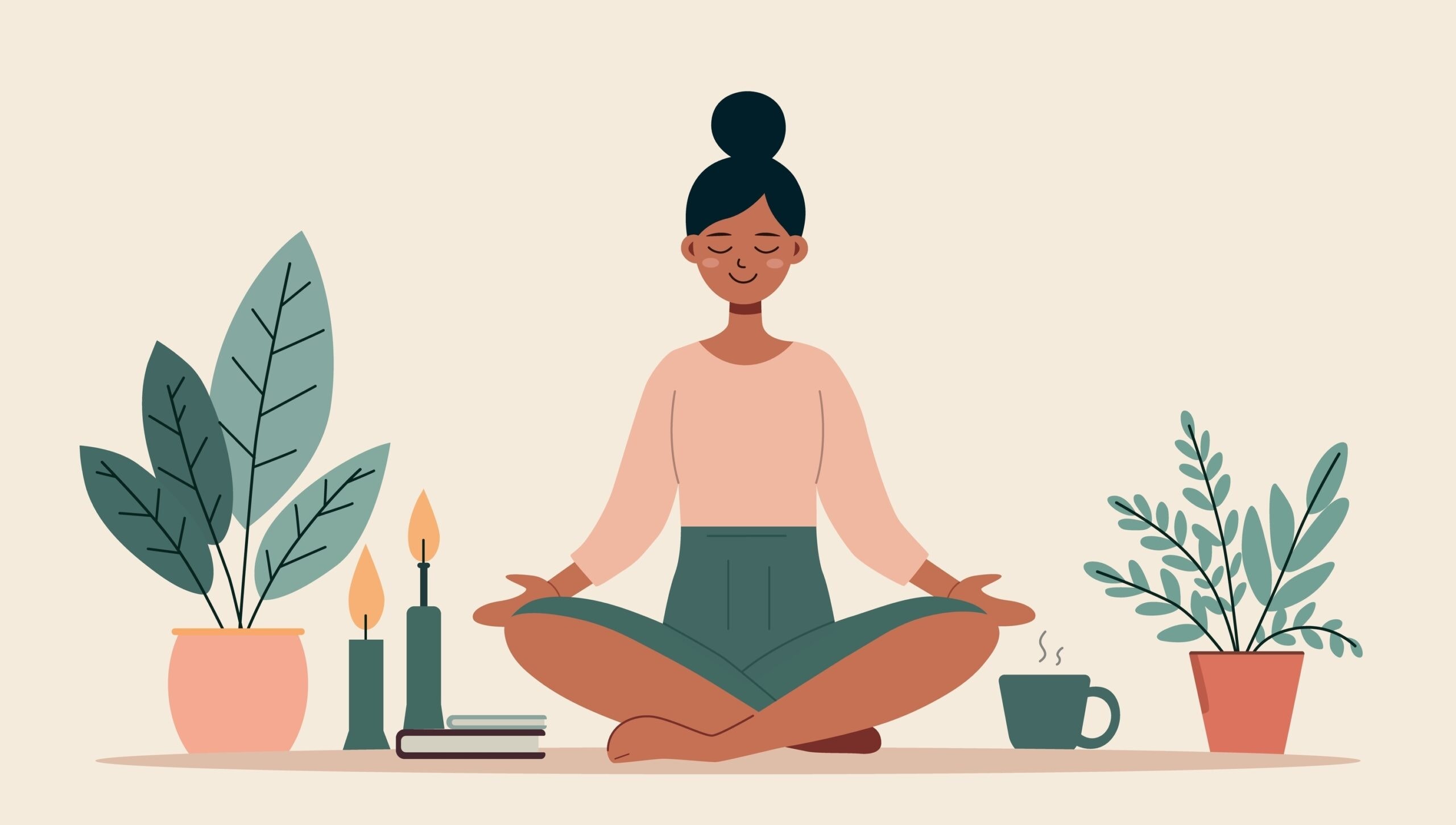From Stress to Serenity: Self-Care for Total Body Wellness
Life today is busier and more stressful than ever before. Between work, family obligations, and the constant distraction of technology, it’s easy to feel overwhelmed and burned out. This chronic stress can take a major toll on our physical and mental health.
Self-care is essential for managing stress and cultivating overall well-being. By being intentional about caring for our minds, bodies, and spirits, we can reduce anxiety, boost energy, and feel more content and fulfilled. Let’s explore practical ways to incorporate self-care into our daily lives for total body wellness.
Understanding the Effects of Stress
Stress causes real changes in our bodies. Chronic stress leads to elevated cortisol levels, which can suppress immune function, impair sleep, and trigger chronic inflammation. This puts us at higher risk for fatigue, frequent illnesses, and even serious conditions like heart disease and diabetes.1
Stress also impacts our brains. It can affect focus and memory, making it harder to think clearly and stay productive. Mental health suffers, too. Stress is linked to depression, anxiety, and other mood disorders.
Common daily stressors range from traffic jams to difficult bosses. Even positive life changes like a promotion or move can be stressful. Caregiving, relationships, and financial pressures also contribute to higher stress levels.
Clearly, stress is unavoidable. But we can control how we respond to these pressures and make self-care a priority to lessen the negative effects.
The Importance of Total Body Wellness
True wellness encompasses more than just physical health. To thrive, we must take a holistic approach that values emotional, mental, spiritual, and social well-being as much as physical fitness. Oftentimes, we focus on exercising and eating right while neglecting other aspects.
But our minds, emotions, relationships, and sense of meaning are just as vital. When one dimension suffers, it negatively impacts other areas.
For example, chronic stress not only taxes us mentally but can also lead to physical symptoms like headaches, stomach troubles, and weight gain. Conversely, the loneliness of social isolation places us at higher risk for depression, anxiety, and even cardiovascular disease. A lack of purpose or fulfillment in work can decrease motivation and productivity.
By nourishing our whole selves, we can create a life of greater balance, resilience, and satisfaction. A holistic approach allows every facet of wellness to be reinforced and amplified by the other facets.
Exercise not only strengthens our bodies but also alleviates anxiety and boosts self-confidence. Meditation sharpens mental focus while inducing physical relaxation. Expressing gratitude not only lifts our spirits emotionally but also forges warmer social connections.
Making self-care a priority allows us to show up as better friends, partners, parents, and community members. When our own needs are met, we have more patience, compassion, and energy to positively impact others.
Total wellness is truly a win-win, empowering us to both care for ourselves and enhance our world.
Self-Care Practices for Mental Health
Strengthening mental fitness provides inner calm and clarity. Meditation is proven to reduce anxiety, improve focus, and help manage stress. Just a few minutes of deep breathing daily can induce relaxation. Mindfulness practices like awareness of the present moment also cultivate peace. Establishing routine stress management activities like journaling, yoga, or inspirational reading nurtures mental well-being.
Quality sleep is vital for cognitive function and emotional regulation. Getting consistent deep sleep minimizes stress hormones and allows the brain to recharge. Developing healthy sleep habits like limiting screen time before bed, creating a restful environment, and avoiding late-night eating or stimulants sets the stage for restful slumber.
Nurturing Emotional Well-Being
Caring relationships are foundational for emotional health. Cultivating intimacy and social connections provides security, joy, and meaning. Set aside dedicated time for loved ones without distractions. Expressing feelings and sharing struggles openly strengthens bonds. Look for support groups or communities focused on meaningful topics like parenting, fitness, spirituality, or creativity.
Activities that bring a sense of purpose fuel emotional wellness. Identify passions that excite you and carve out time for immersive hobbies. Performing volunteer work, learning new skills, and taking on challenges also enhance fulfillment.
Embrace humor, art, music, and creativity for emotional nourishment. Gratitude practices remind you of blessings and foster positive thinking.
Physical Self-Care Strategies
Regular exercise is one of the most effective stress management tools available. Aerobic activity stimulates endorphins and circulation while reducing muscle tension. Even light activities, like walking a few times a week, can aid relaxation and improve sleep quality.
Strength training and stretching preserve physical mobility and prevent injury. Eating nutritious whole foods high in antioxidants and healthy fats improves energy levels. Staying hydrated supports both physical and mental performance.
Make relaxation a priority. Take breaks during the workday to meditate or do light yoga. Ensure time for enjoyable low-exertion activities like reading, spa baths, listening to music, or time in nature. Get adequate sleep nightly and take naps when needed. Say no to unnecessary obligations and build in open, unscheduled time.
Creating a Personalized Self-Care Plan
Everyone’s self-care needs differ based on lifestyle, personality, and current challenges. Reflect on areas you may be neglecting and how you handle stressors. List specific activities that promote each facet of wellness.
Start with small, realistic steps like a daily 10-minute walk or weekly social outing. Schedule self-care into your calendar as you would other obligations. Accomplishing mini-goals builds momentum to tackle more ambitious practices. Re-evaluate your plan regularly and adapt as your needs change.
We call this method the Iterative Mindset – Fresh Tri-ers know it well. You start with a small goal, “tri” it out, assess how you feel, tweak and adjust, and repeat the cycle until you find a routine that works for you. Read more about the Iterative Mindset Method™.
Overcoming Common Barriers to Self-Care
Despite best intentions, self-care often falls by the wayside. Hectic schedules and exhaustion pose obstacles. But even busy lives can accommodate quick stress relievers like a tea break, stretch break, or laugh break.
Here are some quick tips to incorporate more self-care into your life:
- Wake up 30 minutes earlier for meditation time.
- Multitask by listening to audiobooks or inspirational podcasts during commutes.
- Schedule time for exercise on your calendar and treat it as an important meeting.
- Swap nights out for cheaper home-based activities like crafting, reading, or baths.
- Enlist others to help with tasks like childcare, errands, and chores.
- Start small and be consistent.
Just incorporating one piece of self-care each week is a great place to start.
Choose Fresh Tri for Self-Care
Living a less stressful, more balanced life is within reach. Prioritizing self-care allows you to be fully present for others while nurturing your own growth and purpose. With a holistic approach, you can thrive physically, mentally, emotionally, and spiritually.
Download the free Fresh Tri app to join a like-minded community focused on wellness. Let Fresh Tri provide gentle nudges and inspiration to care for your whole self each day.
Reduce stress, boost joy, and feel your best through simple, enjoyable self-care practices for total body wellness. What step will you take today?
- Yaribeygi H, Panahi Y, Sahraei H, Johnston TP, Sahebkar A. The impact of stress on body function: A review. EXCLI J. 2017 Jul 21;16:1057-1072. doi: 10.17179/excli2017-480. PMID: 28900385; PMCID: PMC5579396.













